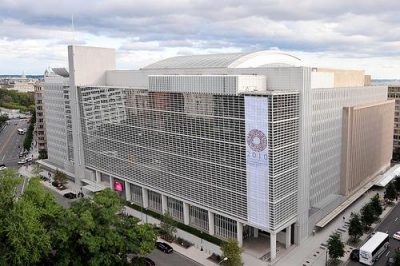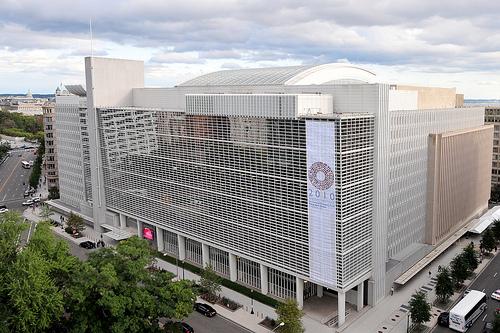Thanks to The Nation for creating the forum for this important dialogue on the World Bank presidency and also to Jeffrey Sachs for participating. Progressives should not expect that we will always march together to one song; we should savor the venues like this where we can debate as allies. We appreciate the many comments that have been posted and others that were sent to us privately.
We will use our limited “rebuttal” space to respond to two key issues.
Jeffrey Sachs should not be the next World Bank chief. Photo by Ryan Rayburn.
So too do we think it strategic for progressives to put forward the best candidates from across the globe, candidates with the qualifications to run a large organization and with the vision, humility, sensibility, and ability to listen to the 99 percent — all necessary to transform the Bank. Since we wrote our initial piece, dozens of people have sent us such names: Nobel laureate Amartya Sen, former UNDP head Gus Speth, urban poor advocate Sheela Patel, Greenpeace International chair Kumi Naidoo, UN Special Rapporteur on the Right to Food Olivier de Schutter, former Brazilian president Lula, and ActionAid International head Joanna Kerr, among others. Any could be a great leader of the Bank, but people and governments hesitate to put “best” names forward so long as the U.S.-European grip on the selection process continues. If U.S. progressives spent as much time promoting a “best” candidate as they are backing Sachs, that person might take-off as a candidate. Such a “best-person” list also presses those who are running to prove they match such high credentials, not that they are better than the worst.
Our second rebuttal issue has to do with the development record of Jeffrey Sachs. Knowledgeable commentators below have added their reflections on Sachs’s role in “shock therapy” and its impacts, particularly in Bolivia. In terms of Sachs’s current work, we note that nobody supporting Sachs has demonstrated that the Millennium Villages represent a “sustainable” future; whatever the pesticide costs per person, fossil-fuel dependent agriculture is not the way forward. We have spent time on the ground with sustainable farmers and “farmer scientists” who are restoring the soil, cutting costs, and raising yields without chemicals. In the era of climate catastrophe, they are the future of agriculture. Millennium Villages and the World Bank should be on board to accelerate the transition to post-chemical, sustainable farming that is good for farmers, consumers, the land, and the climate. Agribusiness firms and fertilizer corporations will fight this transition every step of the way; we need a World Bank president who will stand up to them.
